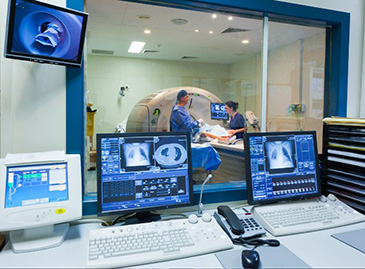
Do exosomes really work for hair loss?
Millions of people all over the world suffer from hair loss. Different therapies are available, however their efficacy varies. Exosome therapy is one of the regenerative treatments that have drawn interest from the medical community in recent years. Little extracellular vesicles called exosomes are encouraging tissue repair and cell-to-cell communication, which may help to restore hair development. Many people are interested in finding out if exosome therapy is a very effective treatment for hair loss.
Exosome-based treatments claim to enhance hair follicle regeneration, reduce inflammation, and trigger new hair growth. But the question remains: Do exosomes work for hair loss? This article will explore the science behind exosomes, their use in hair loss treatment, and whether the evidence supports their effectiveness.
What are Exosomes?
Exosomes are tiny, membrane-bound vesicles that cells release to transfer proteins, lipids, and genetic material. These particles play a critical role in immunological regulation, tissue repair, cell regeneration, and cell communication. They carry instructions between cells to promote complex and intriguing biological processes like healing, acting as messengers in the process.
In the context of hair loss, exosomes can affect the activity of hair follicle cells. Since hair growth is closely related to the health of hair follicles and surrounding tissues, exosomes are being used in regenerative medicine to promote hair restoration. By delivering growth factors and signalling proteins, exosomes help stimulate dormant hair follicles and initiate the hair regrowth process.
Exosome-based therapies are currently being researched for their potential to treat a range of conditions beyond hair loss, including inflammatory diseases and tissue injuries. Their versatility and potential make them a promising option in the field of regenerative medicine.
How Exosomes Are Used for Hair Loss
Exosome therapy for hair loss is a relatively simple, non-invasive procedure. During the procedure, exosomes are injected directly into the scalp, especially in the places where hair is thinning or falling out. Through their interactions with the hair follicles, the exosomes provide growth factors that encourage regeneration.
The body's natural regenerating mechanisms are stimulated, which is the main method of action. The exosomes send signals to the cells in the scalp, encouraging the growth of healthier, thicker hair by reviving dormant hair follicles. Unlike more invasive options such as hair transplants, exosome therapy is minimally invasive and generally requires little to no downtime.
When compared to PRP (Platelet-Rich Plasma) therapy, another popular treatment for hair loss, exosome therapy is believed to deliver more potent regenerative properties because exosomes carry more targeted and concentrated growth factors. While hair transplants focus on redistributing hair follicles, exosome therapy focuses to repair and revitalize existing follicles, making it a gentler option for those in the early stages of hair thinning.
Do Exosomes Actually Work?
Research is currently being done to determine whether exosome treatment works for hair loss. Several people have reported discernible increases in hair thickness and regeneration, and numerous clinical trials have produced encouraging outcomes. Though experts warn that more extensive, long-term research is necessary to properly prove its usefulness, the majority of the evidence is anecdotal.
That said, the treatment has shown several potential benefits. It’s non-invasive, with minimal downtime, making it an appealing option for those seeking alternatives to surgical interventions like hair transplants. Moreover, exosome therapy might offer quicker recovery and fewer side effects than PRP or other hair restoration techniques.
However, it’s noteworthy to mention that results can vary depending on individual factors such as the stage of hair loss, age, and overall health.
Who is a Good Candidate for Exosome Therapy?
Ideal candidates for exosome therapy for hair loss are those in the early stages of hair thinning or mild hair loss. It’s most effective for patients with active hair follicles but need stimulation. Individuals experiencing advanced hair loss, where follicles are no longer functional, may not benefit as much from this treatment.
To determine whether exosome therapy is right for them, patients should speak with a healthcare professional. Treatments may be less effective or inappropriate in some circumstances due to problems such specific scalp infections or underlying medical illnesses.
To Conclude
Treating hair loss with exosome therapy is a promising new approach. Further research is required to validate its long-term efficacy, despite the convincing science behind it and the favourable results reported by many early adopters. In individuals experiencing hair loss in its first phases, exosome therapy could be a minimally invasive and non-invasive regeneration solution.
If you're considering this therapy, it's essential to consult with a medical practitioner to decide if it's the right approach for you. The cost of exosome therapy in Turkey is often more affordable than in other countries, making it an appealing option for those seeking advanced hair loss treatments at competitive prices.
Stem Cells Therapy Price Turkey



